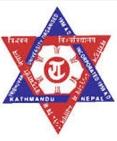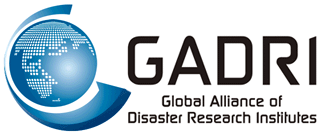- Home
- About
- Events
- Members
- About Members
- Member Institutes
- Algeria
- Argentina
- Australia
- Austria
- Bangladesh
- Brazil
- Bulgaria
- Canada
- China, People's Republic of
- Colombia
- Ecuador
- Egypt
- European Commission
- France
- Germany
- Ghana
- Hong Kong (People's Republic of China)
- India
- Indonesia
- Iran (Islamic Republic of)
- Israel
- Italy
- Japan
- Korea, Republic of
- Lao PDR
- Malaysia
- Mexico
- Morocco
- Nepal
- New Zealand
- Oman
- Phillippines
- Slovakia
- South Africa
- Sri Lanka
- Sudan
- Sweden
- Switzerland
- Chinese Taipei
- Thailand
- Turkey
- United Kingdom
- United States
- Vietnam
- Zimbabwe
- Membership
- Activities
- Resources
- GADRI Archives
- Home
- >
- Members
- >
- Member Institutes
- >
- Nepal
International Centre for Integrated Mountain Development (ICIMOD)Kathmandu |
|
| Outline The International Centre for Integrated Mountain Development (ICIMOD) is a regional intergovernmental learning and knowledge sharing centre serving the eight regional member countries of the Hindu Kush Himalayas - Afghanistan, Bangladesh, Bhutan, China, India, Myanmar, Nepal, and Pakistan - and based in Kathmandu, Nepal. Globalization and climate change have an increasing influence on the stability of fragile mountain ecosystems and the livelihoods of mountain people. ICIMOD aims to assist mountain people to understand these changes, adapt to them, and make the most of new opportunities, while addressing upstream-downstream issues. We support regional transboundary programmes through partnership with regional partner institutions, facilitate the exchange of experience, and serve as a regional knowledge hub. We strengthen networking among regional and global centres of excellence. Overall, we are working to develop an economically and environmentally sound mountain ecosystem to improve the living standards of mountain populations and to sustain vital ecosystem services for the billions of people living downstream now, and for the future. [detail] --> |
|
 |
Institute of Engineering, Tribhuvan UniversityPatan |
| Outline Nepal being the landlocked country in the northern hemisphere and sandwiched between two Asian giants: China and India, has the glory of having world's highest mountain- Sagarmatha (Everest) and being the birth place of Lord Buddha- Light of Asia. The beauty of the country is extreme diversity within close proximity of topography, ecology, flora and fauna. Owing to the topography and people, Nepal has rich cultural heritage. Visualizing the economy, Nepal is in the process of transformation. The concern now is the development of the country and prosperity of the people. Prosperity is not only the material well-being; it is building capacity of the people with rights and responsibility. Institute of Engineering (IOE) visioned to be instrumental to achieve this national goal of prosperity of the country and the people. This can be done by producing capable and competitive engineering graduates. Engineering education has two dimension; skill developing and capital formation. Both are equally important for the economic growth of the country. As the world is moving towards knowledge based economy, all the nations are entering into 'global skill race'. In this race, education knowledge and skills are assuming ever-greater importance. Understanding this essence, IOE is striving to move forward with market relevant programs and research works. [detail] --> |
|


